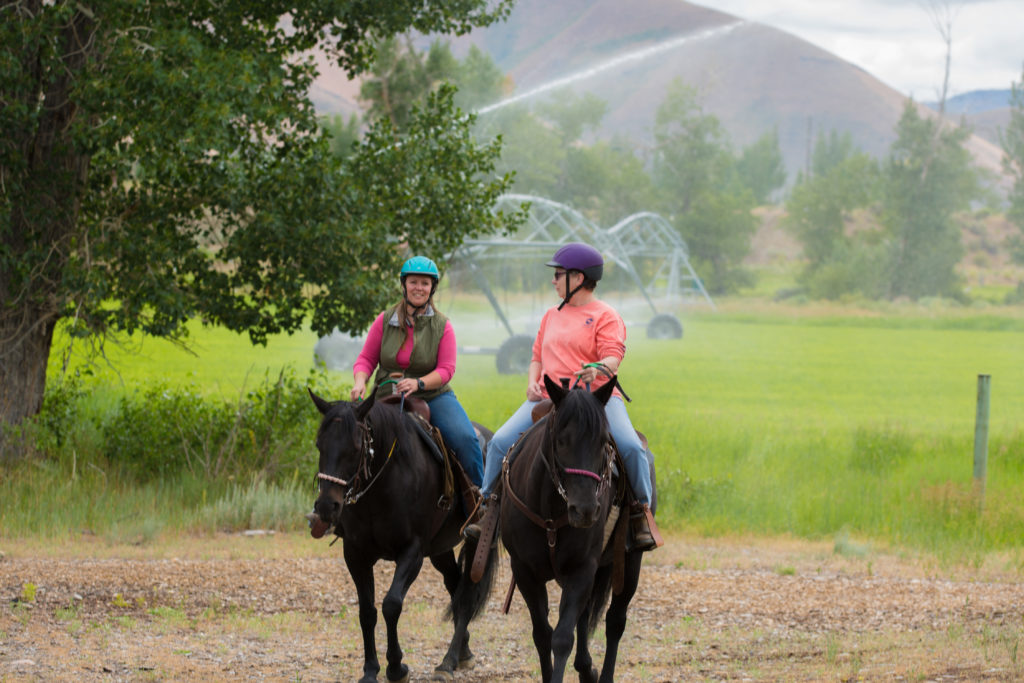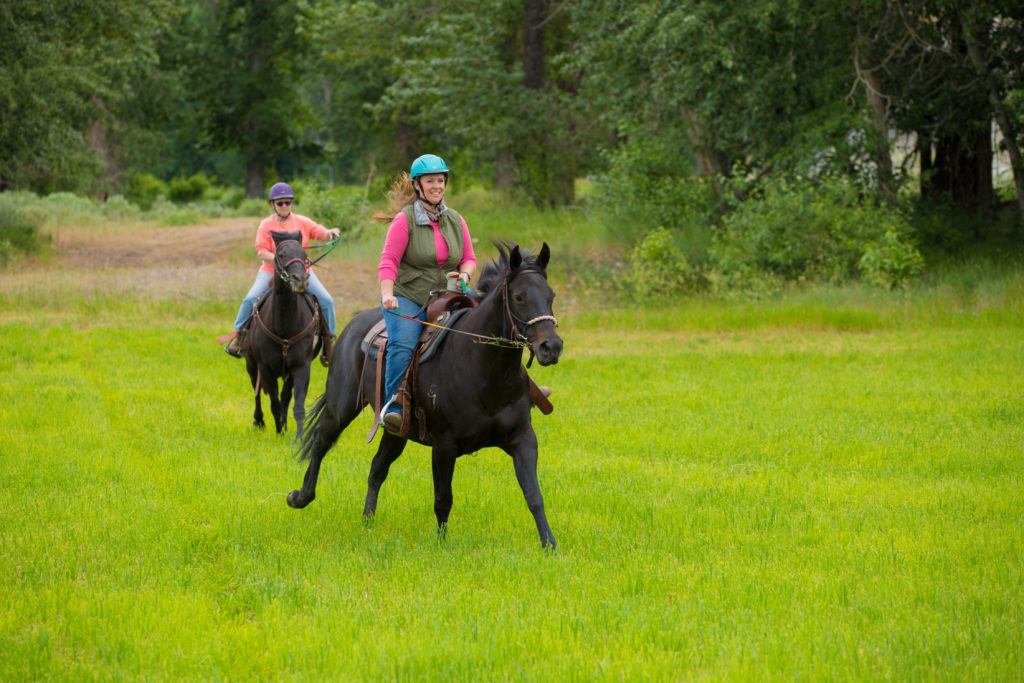June is Post-Traumatic Stress Disorder (PTSD) Awareness Month, and we’re honoring those who suffer from PTSD by sharing a bit more of what we see at the ranch. PTSD is a mental health condition that individuals can develop after witnessing or experiencing a traumatic event or series of events. Most of us relate PTSD with our veterans or those who experience terrorist acts and war/combat. But, PTSD can surface from various traumatic experiences such as a natural disaster, abuse, sexual violence and/or serious injury. Some of the noticeable side effects of PTSD can include severe anxiety, flashbacks, sleep disorders, irritability and anger, intense reactions to reminders of the trauma, disturbances in relationships, and isolation. Equine-assisted therapies can have a significant positive impact on the lives of those who suffer from PTSD. Keep reading as we dive deeper into the benefits of equine-assisted therapy and PTSD.
Research has shown, and we’ve seen firsthand, that equine-assisted therapies use the connection between people and horses to enhance emotional healing. This connection can jump-start the healing process for veterans, or others, who have PTSD.
Through horse-human interaction, individuals can relearn how to recognize their feelings, regulate emotions, set boundaries, and better communicate with others. The equine connections also help build trust within individuals as well. All of these are critical tools for successful family, work and social relationships.
When participants arrive at the ranch, we allow them to set their ease point. We want them to feel confident with their early interactions. Kristy and the team take the time to learn about each individual and select the horse they feel will be the best fit. The goal with the horse is to not only give control and a voice back to the participant but to also take them out of their comfort zone and show them that they CAN set boundaries with the horse, they CAN use their voice to communicate their needs and wants, and they CAN trust in the horse and in their abilities.
Horses are often referred to as mirrors to current emotional states of mind. A horse’s instincts and ability to sense anxiety and/or stress in the person who is approaching them is what makes equine-assisted therapies so unique. For those who have PTSD (and many other challenges), horses help participants learn to recognize their current emotions and adjust to approach. Horses pay attention to body language and react accordingly. This helps our participants identify their state of mind and relate it back to themselves, ultimately finding success in a calm connection with their therapy horse. Through the connection with the horse, PTSD sufferers learn that they can take a step back and gain confidence.
This becomes a powerful tool because they find that once they make the connection with their horse, they can confide in them without judgment. While grooming and leading the horse through the arena, participants are able to talk with the horse, shed a tear, and even share their biggest concerns and fears—all while setting boundaries with their horse.
For many, riding a horse is the ultimate connection. However, working with horses from the ground and/or behind our new carriage is just as rewarding. With the addition of the carriage driving program, our goal is to expand our services to a greater population in need. Having the carriage program will allow for those who may not be able-bodied enough to be on horseback or for those who are simply not comfortable on horseback to have a similar experience.
At the end of the day, whether our PTSD participant is a veteran, child, teen, or middle-aged, our goal is to have them feel at ease, have them feel the control is in their hands, and they can trust the process for growth.
Interested in learning more about the programs we offer here at Swiftsure Ranch? Visit our website today: swiftsureranch.org.



